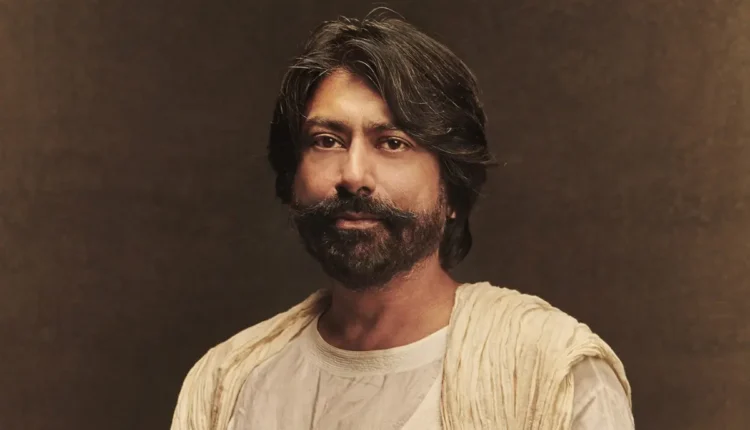Talvin Singh OBE, born in 1970, is a pioneering English musician, producer, and composer known for his innovative fusion of Indian classical music with drum and bass. As a tabla player, Singh has been instrumental in shaping the electronica subgenre known as Asian Underground and more recently, Indian and Asian electronica. His remarkable journey from Leytonstone to the global music stage has inspired many and continues to break musical boundaries.
Early Life and Career of Talvin Singh
Talvin Singh’s musical journey began in Leytonstone, where he grew up and started playing the tabla as a child. His passion for the instrument took him to India at the age of 16, where he studied under the renowned Sangeet Acharya Ustad Lachman Singh Seen of the Punjab Gharana.
Although Singh’s classical training was profound, his unique style, which incorporated western influences, was initially not accepted by British promoters of classical Indian music.
Undeterred by the initial resistance, Singh decided to explore the fusion of sounds, which led to his rise in prominence in the late 1980s. In 1991, Singh made a significant breakthrough by playing tabla and singing on the “Kiss Them for Me” single by Siouxsie and the Banshees, which peaked at number 23 on the Billboard Hot 100. This success marked the beginning of Singh’s journey in the world of fusion music.
Rise to Fame
By the early 1990s, Talvin Singh had established himself as a versatile musician. His collaboration with Björk on her 1993 album, “Debut,” as a percussionist and director, further cemented his reputation. In late 1995, Singh co-founded the Anokha club night with promoter Sweety Kapoor at East London’s Blue Note. Anokha became a hub for drum and bass DJs and South Asian punk bands, with Singh’s tabla and percussion adding a unique flavor to the mix.
Anokha’s success led Singh to sign with Island Records for an Anokha compilation, which included several of his own productions. His innovative approach to music caught the attention of many, leading to collaborations with high-profile artists such as Madonna and Massive Attack.
Breakthrough with “Ok”
In 1998, Talvin Singh released his solo debut album, “Ok,” which received critical acclaim and won the prestigious Mercury Music Prize in 1999. The album was a groundbreaking work that showcased Singh’s ability to blend traditional Indian sounds with modern electronic music.
Featuring contributions from notable artists like Bill Laswell, Ryuichi Sakamoto, Ustad Sultan Khan, and the Madras Philharmonic Orchestra, “Ok” was recorded across multiple locations including Mumbai, Madras, Okinawa, New York, and London.
Style and Influences
Talvin Singh is an accomplished tabla player, electronic musician, music theorist, record producer, and DJ. He is widely regarded as the father of modern Asian electronica music. Singh’s music draws heavily from classical Indian arts, and his training under Ustad Lachman Singh Seen left a lasting impact on his artistic sensibilities.
His collaborations with Indian classical musicians like Ustad Sultan Khan, Rakesh Churasia, Ustad Imrat Khan, and Ustad Amjad Ali Khan have been instrumental in reintroducing Indian classical music concepts to western pop, dance, and jazz genres.
Singh’s involvement in experimental music collaborations began in the late 1980s, working with artists like Sun Ra and Courtney, which helped popularize the Asian Underground movement. His ability to blend traditional and modern sounds has made him a celebrated figure in the music industry.
Artistic Ventures and Innovations
Beyond his music career, Talvin Singh has pursued several artistic ventures. He created the seminal London club Anokha, performed at the Tate Gallery in London, and composed music for various experimental dance, theatre, and film projects. Singh also conceived the Tablatronic in 1990, a hybrid electronic/analog tabla with a rare internal microphone system.
Despite his success in fusion music, Singh has expressed a dislike for the term “fusion music” and the notion that Indian musicians must conform to it. He believes in the purity of music and its ability to transcend cultural and genre boundaries.
Awards and Recognition
Talvin Singh’s contributions to music have been widely recognized. His debut album “Ok” won the Mercury Music Prize in 1999, and he received an award for his “Commitment to Scene” at the UK Asian Music Awards (UK AMAs) in 2010. In 2014, Singh was awarded an OBE in the Birthday Honours for his services to music.
Also Read:Diamond Duggal: Pioneer of Electronic and Punjabi Bhangra Fusion

